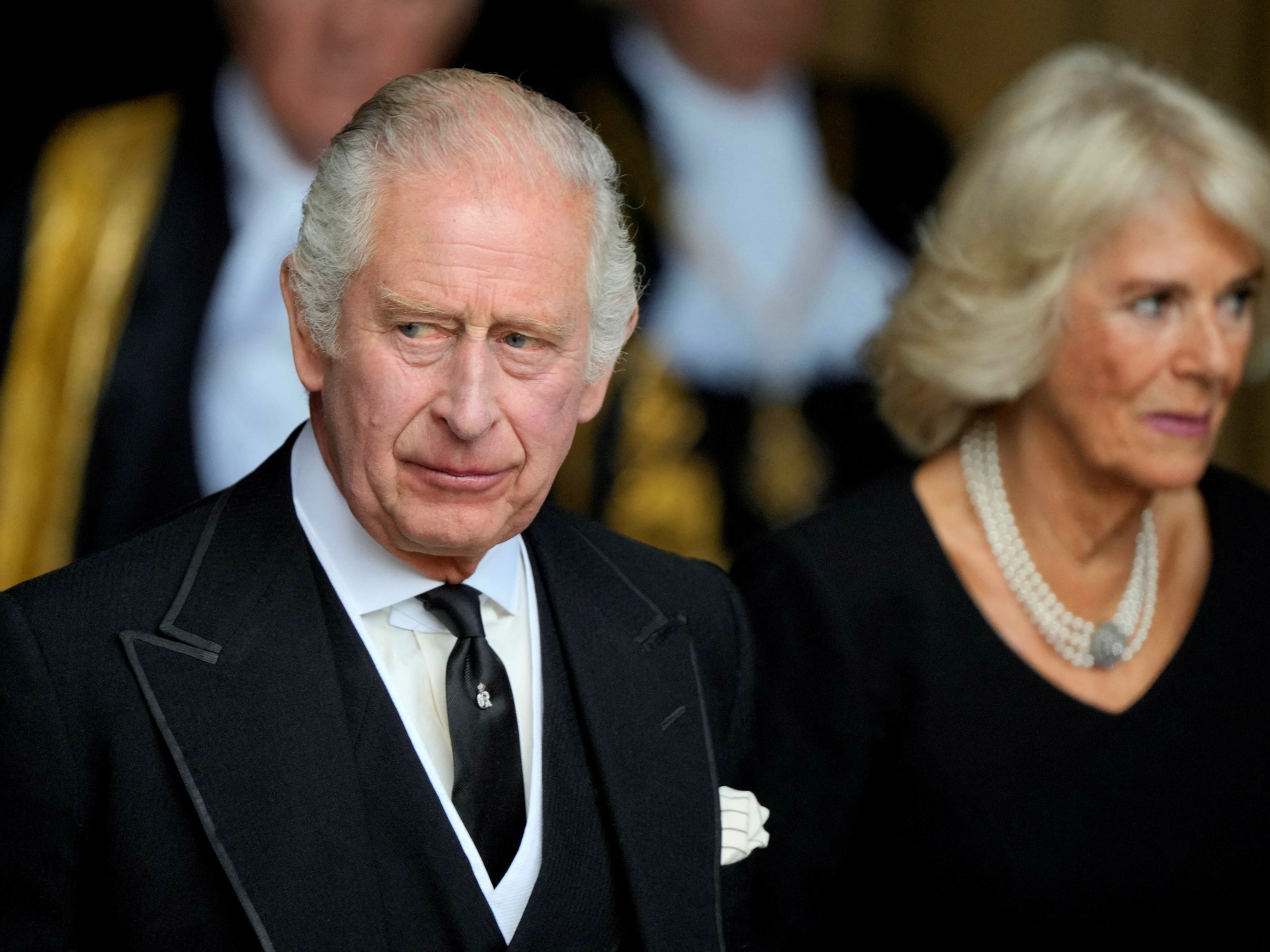Accession of King Charles III has led to renewed calls in Caribbean nations to remove the monarch as their head of state.
The death of Queen Elizabeth II has sparked an outpouring of condolences from around the world, but in some former colonies, questions are being raised about the monarchy’s future.
The accession of King Charles III to the British throne has renewed calls from politicians and activists in the Caribbean to remove him as their head of state.
We take a look at the debate taking place around the Commonwealth.
What are the Commonwealth and the realm?
-
The Commonwealth is a political association of 56 countries, mostly former British colonies.
- The voluntary association covers 2.5 billion people across the globe. Togo and Gabon became the latest members this year, despite never having been under British rule.
-
Of those 56 countries, 14 are part of the commonwealth realm; those countries still keep King Charles as their monarch.
-
In addition to the UK, those countries include Antigua and Barbuda, Australia, Bahamas, Belize, Canada, Grenada, Jamaica, New Zealand, Papua New Guinea, Saint Kitts and Nevis, Saint Lucia, Saint Vincent and the Grenadines, Solomon Islands and Tuvalu.
-
The other countries became independent after Queen Elizabeth II took the throne in 1952, and many have since thrown off the monarchy, but she saw the Commonwealth as a way to keep the diverse nations together.
-
At a summit in 2018, Commonwealth leaders confirmed that Charles would follow her as head of the organisation when she died.
- However, calls for change are growing amid the Commonwealth realm, and some countries have expressed interest in becoming a republic.
Which countries are considering a change?
-
Antigua and Barbuda, Jamica, Saint Vincent and the Grenadines.
-
Shortly after Charles was confirmed king of Antigua and Barbuda, Prime Minister Gaston Browne said he intended to hold a republic referendum “within the next three years”.
-
“This is not an act of hostility or any difference between Antigua and Barbuda and the monarchy, but it is the final step to complete that circle of independence,” he told broadcaster ITV News.
-
Calls for change are also growing in Jamaica, where Prime Minister Andrew Holness told Charles’ son William in March that the nation was “moving on” as an independent country.
-
An August survey showed 56 percent of Jamaicans favour removing the British monarch as the head of state.
-
In Saint Vincent and the Grenadines, Prime Minister Ralph Gonsalves proposed a referendum in July but said he would only pursue it if there is bipartisan support.
-
The royals have said they would not stand in its way.
-
“I want to say clearly, as I have said before, that each member’s Constitutional arrangement, as republic or monarchy, is purely a matter for each member country to decide,” Charles said at a Commonwealth summit in June this year.
Which countries want to remain the same?
-
So far, Australia, Canada, New Zealand, Papua New Guinea, Solomon Islands, Tuvalu.
-
New Zealand Prime Minister Jacinda Ardern said on Monday her government will not pursue becoming a republic following the death of Queen Elizabeth II.
-
Ardern said she thought New Zealand will eventually become a republic, and it would probably happen within her lifetime, but that there were more pressing issues for her government.
-
In Canada, republicans are in a minority, and on Saturday, Prime Minister Justin Trudeau affirmed the country’s loyalty to the new king.
-
“On behalf of the Government of Canada, we affirm our loyalty to Canada’s new king, his majesty King Charles III, and offer him our full support,” Trudeau said.
-
The question of Australia becoming a republic is a hotly debated topic, with polls over the years showing near-equal support for both the monarchists and republicans.
-
Australia held a referendum on becoming a republic in 1999, which was narrowly defeated.
-
Asked in a radio interview if the Queen’s death takes Australia closer to being a republic, Prime Minister Anthony Albanese said it was not the time to talk about it.
-
Leaders in Papua New Guinea, Solomon Islands and Tuvalu have expressed their support for the monarchy in recent days.
What’s the position of the five remaining countries?
-
The five remaining countries are Bahamas, Belize, Grenada, Saint Kitts and Nevis, and Saint Lucia.
-
The decision of Barbados to ditch the queen as head of state in November 2021 was seen as a boost for the republican cause, and Belize has said it wants to follow suit.
-
In the Bahamas, following a visit by the Duke and Duchess of Cambridge, Prime Minister Phillip Davis said he hopes that during the celebrations of the 50th anniversary of independence, “there is a lively discussion and debate about our future: about who we are and what we want to be.”
-
In Grenada, people have also questioned the crown’s role in the country and Arley Grill, the chairman of Grenada’s National Reparations Committee, said early this year that the monarchy has lost “its relevance and significance.”
-
In April, Saint Kitts and Nevis also indicated their intention to revise the relationship with the monarchy.
-
“The advancement of the decades has taught us that the time has come for St Kitts and Nevis to review its monarchical system of government and to begin the dialogue to advance to a new status,” Shawn Richards, the deputy prime minister, said.
-
And in Saint Lucia, there have also been calls to become a republic. In April, former Prime Minister Allen Chastanet said he supported those calls.
-
“I certainly believe, like many other people, the time has come to make that change in becoming a republic,” he said.
